“I have this love affair with the ’70s—this gray area of music where one genre talks to another,” proclaims six-time Grammy nominee Yola. “That gave rise to loads of bands we would find hard to place nowadays, like Parliament-Funkadelic, Minnie Riperton, and Rotary Connection. They show how everything has been influenced by something else in the music sphere. It gets us away from this idea of genres, you know? And so that’s something that I consciously want to do. It’s like a mission.”
If Yola’s goal on her most recent release, Stand for Myself, was to meld her musical influences and life experiences into a cohesive, singular approach that craftily defies categorization, then mission accomplished. Songs like “Starlight,” “Diamond Studded Shoes,” and the title track, draw equally on the aforementioned seminal artists that Yola discovered via her mother’s ’70s record collection, as well as the mixtapes she created from listening to the British radio of her youth, which featured everything from ’90s neo-soul to R&B to Britpop. In any given song on Stand for Myself, you can likely identify familiar sonic themes, but when channeled through the lens of Yola’s personal experience, the result is an album that assimilates decades of music with a refreshingly contemporary point of view.
“I needed to take this concept of inaccessibility and patriarchy and whitewashing that were bestowed upon the legacy of rock ’n’ roll post-Sister Rosetta and undo that process.”
Yola was born Yolanda Claire Quartey in 1983 in Bristol, England. She first cut her teeth in the U.K. as a lead vocalist and songwriter with bands like Phantom Limb, Massive Attack, and Bugz in the Attic. She subsequently worked as a top-line writer, creating lyrics and melodies for artists like Will Young, Chase & Status, and Katy Perry. Her powerhouse vocals have even been sampled by the Chemical Brothers and Iggy Azalea. Her 2019 debut, Walk Through Fire, received widespread acclaim from Rolling Stone and The New York Times, which praised her “genre-fluid” blending of sounds, from “vintage Southern soul” to the “early-1960s pop melodramas of the Righteous Brothers and Roy Orbison.” That album earned Yola four Grammy award nominations, including Best New Artist. With Stand for Myself, she earned two more Grammy nominations, for Best Americana Album and for Best American Roots Song for “Diamond Studded Shoes.”
Sonically, Yola arrived at the musical medley that is Stand for Myself through what she calls a “process of metabolizing your influences.” She describes it as bringing oneself to the artistic table. “No one’s going to be able to replicate your perception of reality,” explains Yola. “Honestly, the only new thing that really exists in that matrix of your experience is you. And what’s really important to do in music as an artist is to find how you interject yourself into the process of being artistic, so by the time you bring your influences back out into the world, they aren’t what they were when they went in. They’ve been changed by being seen, and heard, and appreciated by you.”
Yola - "Stand For Myself" [Official Music Video]
To that point, Yola’s songs on Stand for Myself lyrically explore deeply personal themes that are often informed by her own research on the paradigm of supremacy, and instances of bigotry and racism that have deeply impacted her life and career. She now finds herself poised to help fulfill part of an incomplete narrative that includes what she calls “the whitewashing of the influence of Black women in the birth of rock and roll” via her portrayal of Sister Rosetta Tharpe in Baz Luhrmann’s upcoming Elvis biopic. “You don’t get a whole rounded story of Elvis without telling the actual truth,” she asserts. “And the truth is way more interesting and complicated than the narrative that is thrown at us by white male rockdom.”
The soundtrack for Elvis was recorded at RCA Studio A with producer Dave Cobb (Jason Isbell, Chris Stapleton, Slash) in Nashville. “Principally, they recognized that I had experience doing voiceover for music sample replay for about 15 years, which was exactly the skill set that was required,” Yola explains. Combined with burgeoning guitar chops, she was essentially a shoo-in for the role of Tharpe, except that she’d never soloed before. “I had to do my first solos ever on camera, which is just ridiculous to think,” she laughs. The audio production team on Elvis sent her slowed down versions of the songs so she could learn Sister Rosetta’s solos by ear. “Everything I do is by ear,” Yola says. She would sing the melody of the solo, and then the production team would let her know “where they thought it was on the neck” that Sister Rosetta was playing. For the film, Gibson sent her a replica of Sister Rosetta’s 1961 SG Custom.
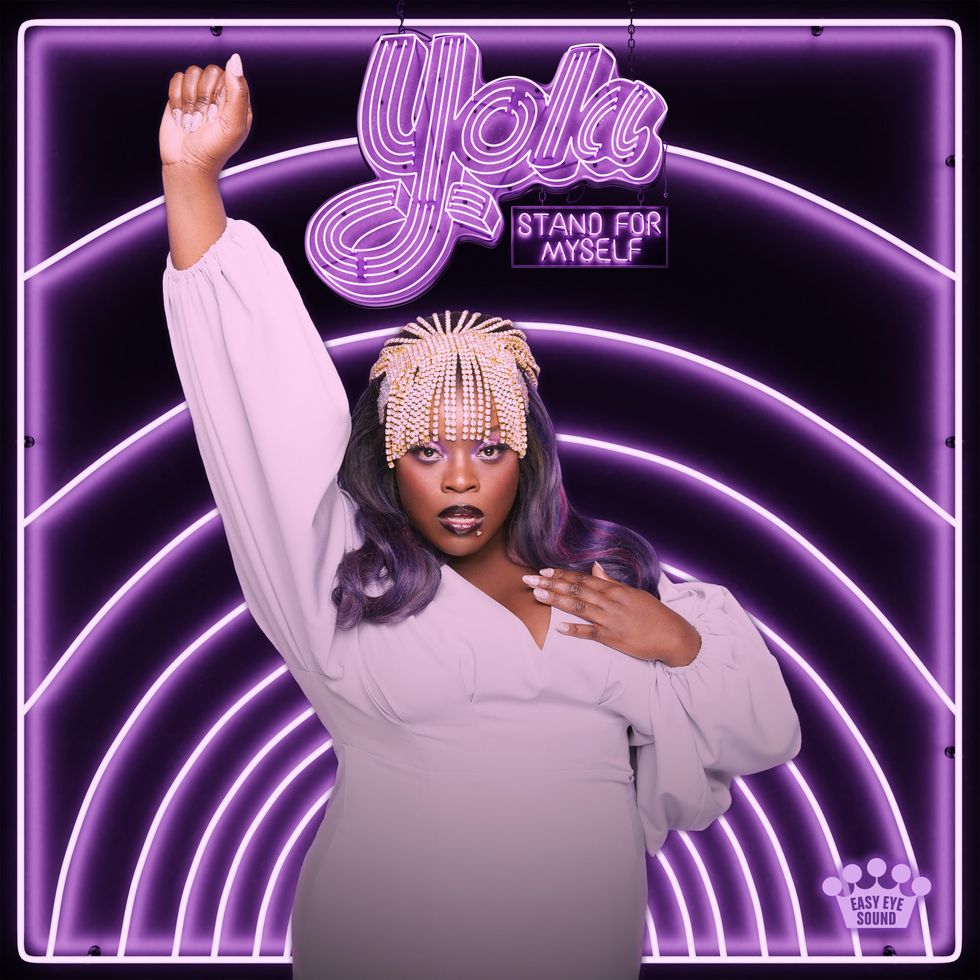
Yola’s Stand for Myself was released in 2021 and recorded at Dan Auerbach’s Easy Eye Sound Studio in Nashville. The album was nominated for Best Americana Album at the 2022 Grammy Awards.
Yola says the bigger challenge, however, was singing counter to the rhythm of what her fingers were doing with the guitar. “She [Sister Rosetta] was always kind of dovetailing a solo while she was singing, and then she’d stop singing and do another solo,” explains Yola. “But she’d already been noodling right across her vocals. So, I had to get good at rubbing my tummy and patting my head.” It took time, and it took “some tuition,” she says, with help from composer Elliott Wheeler, production designer Catherine Martin, and movement coach Polly Bennett—all of whom “pretty much ferried me from this rhythm player who sings and writes songs to this kind of shredder.”
“The idea is to disable my prefrontal cortex—that excessive analytical thinking that one might believe is what we write with.”
Apparently, the production team did have the option for a hand double, but Yola says it was important that she play the actual guitar solos herself. “I needed to take this concept of inaccessibility and patriarchy and whitewashing that were bestowed upon the legacy of rock ’n’ roll post-Sister Rosetta and undo that process,” she declares. “The programming is absolute—it’s very effective and it doesn’t help tell the truth at all.” Yola calls the absence of Sister Rosetta in most rock ’n’ roll history books “problematic,” and that it became important for her to present to the world the context in which they understand the legacy of rock ’n’ roll. “She was the first person to distort the guitar and to bend the strings in the way that we now recognize as the blueprint for rock and roll music,” Yola contends. “Without distorting the amp, without the shred, without the tempo and the swing with which she delivered her solos, rock ’n’ roll doesn’t exist.” She hopes her portrayal of Sister Rosetta helps to set the record straight, but perhaps more importantly she’d like her performance to help dismantle the idea of being disenfranchised from the guitar, which is something she says plagued her. “I was told all the time when I was in England that I shouldn’t be anywhere near a guitar.”
Yola’s Gear
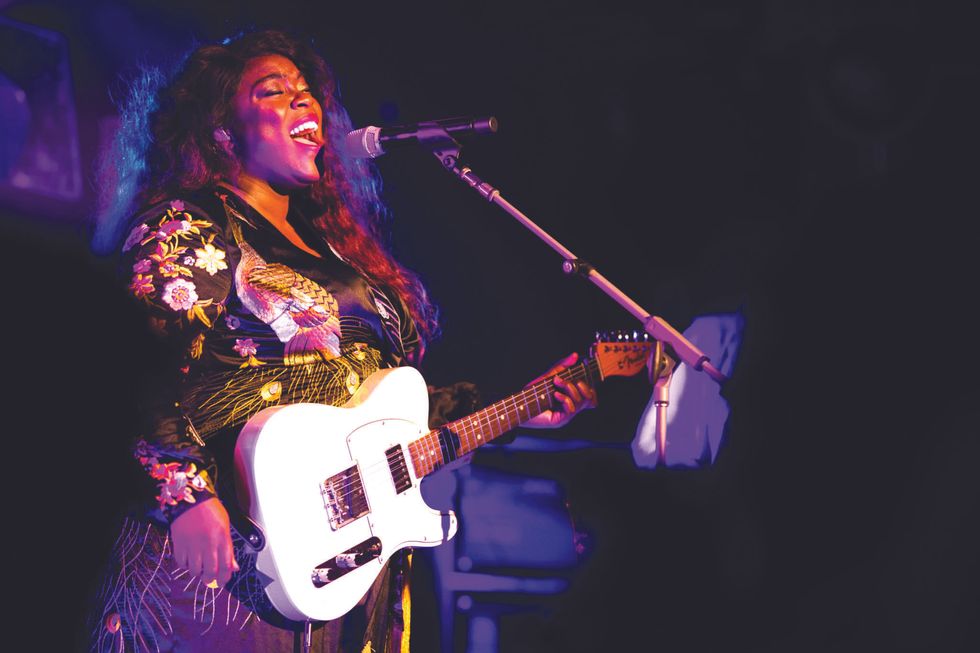
On her current headlining tour, Yola plays a Telecaster at Birmingham, Alabama’s Saturn venue on March 20, 2022. Her other go-to electric is a fiesta red Fender Noventa Jazzmaster.
Photo by Josh Weichman
Guitars
- Fender Paramount Series PM-1 Limited Adirondack Dreadnought
- Fender Noventa Jazzmaster
- Fender Custom Shop American Classic Telecaster
- Gibson 1961 SG Custom Reissue (for Sister Rosetta role in Elvis)
- Martin (000-size body)
As for picking up the guitar for her own music, Yola describes her initial impulse, originally by way of a Martin 000-series, as a “low-lift” way of being able to bring fully formed songwriting ideas to the table. “When I was a top-line writer, I’d have an idea, and it would be relatively full and complete in my head, but then I’d try to explain that to somebody and it would become changed unrecognizably, because you don’t know how to do anything other than suggest something. And so [playing guitar] is just the freedom to be able to finish a thought process.” She says it also makes collaboration more straightforward. “You’re able to say, ‘Here’s a bit of an idea. I have a verse and a chorus, but I don’t have a bridge, can you do me one? Here’s the context.’ You’re able to bring something full to the table.” She cites “Stand for Myself” as an example. “I knew that I wanted it to have a bit more of a sus4 feeling,” she recalls. “But I wasn’t quite sure if I wanted it to be repetitive or if I wanted there to be a movement of Dsus4, so I called my friend, Hannah V, and we figured it out.”
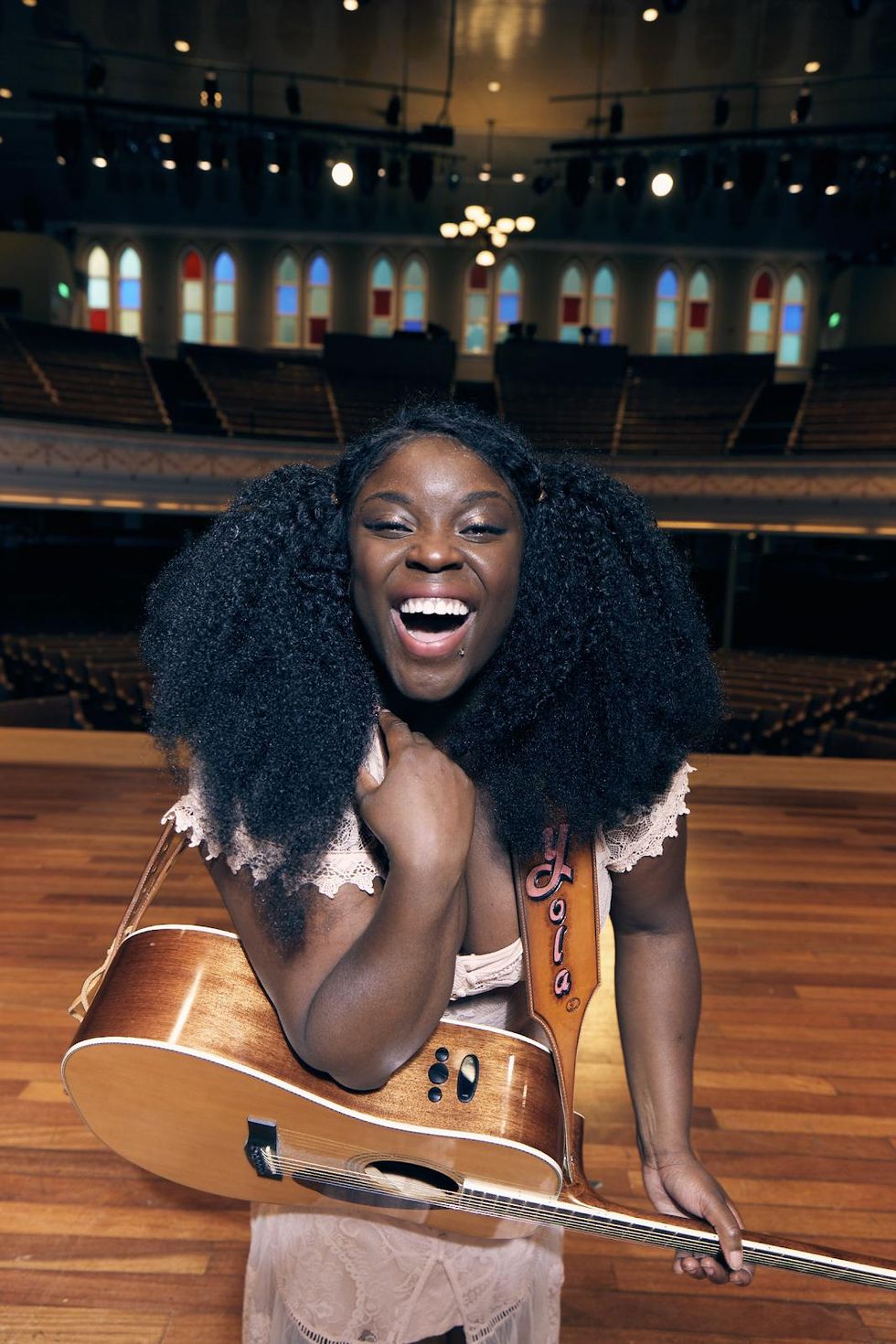
Yola generates her own light, posing onstage with her Fender PM-1 electro-acoustic at Nashville’s Ryman Auditorium.
Photo by Joseph Ross Smith
Yola says playing guitar became even more essential during the pandemic, when intimate settings, requiring fewer musicians, like her NPR Tiny Desk appearances, started becoming the norm. “If it can hold together relatively stripped down, then it’s probably a good song,” she asserts. “Production is important, but the melodic hooks that are important to the song have to be able to be told on a couple of instruments.” Yola often wields a Fender Paramount Series acoustic guitar during such performances.
“I was told all the time when I was in England that I shouldn’t be anywhere near a guitar.”
As for the actual act of songwriting itself, Yola gravitates towards “motor-skill-forward” activities, like vacuuming, showering, and walking to get into a “hypnotic state.” She also stays up late, watching TV and strumming the guitar idly, going through chord changes. “The idea is to disable my prefrontal cortex—that excessive analytical thinking that one might believe is what we write with.” The “most elegant connections,” she professes, are made without using that part of the brain. “So, I’d try to distract it—the guitar being the thing that jogs the inspiration into the rest of my brain, once I’ve got the prefrontal cortex taken care of.”
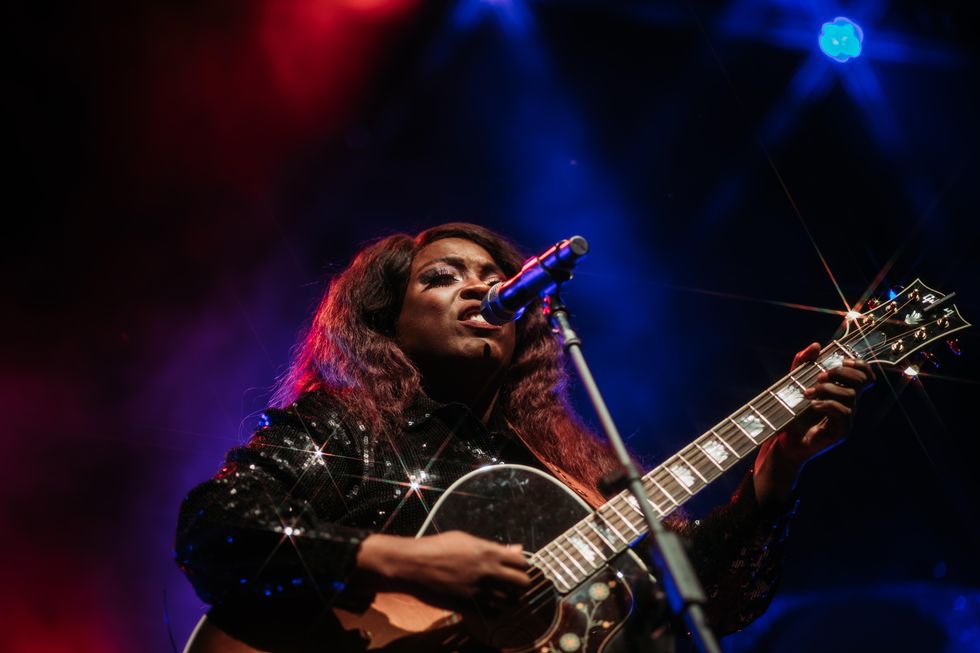
Yola says playing guitar is “the freedom to be able to finish a thought process.”
Photo by Katie LaRocca
Circling back around to the Elvis biopic, she again emphasizes the importance of putting Sister Rosetta’s legacy into the context of what we know about the development of rock ’n’ roll. “It’s so people can better understand where the thing they love comes from,” she explains. “Take her discovery of Little Richard. It makes sense that a guy in drag, singing rock ’n’ roll, would be discovered by a queer Black woman, as opposed to a buttoned-up white guy from the ’50s. All of a sudden you go, ‘Well, of course. Now that makes sense [laughter]. How the hell does he survive, otherwise?’ And so, once things start making sense, it then becomes my duty, to the history of rock ’n’ roll, to the history of guitar playing, to the history of women in music, to do the homework, learn the guitar, understand Sister Rosetta’s importance, and hold the guitar aloft as this thing that gives, so much more than it takes, for every human that touches it.”
Yola - Stand For Myself (Live From Easy Eye Sound)
Yola sings her empowering anthem “Stand for Myself” with assistance from her Fender Paramount PM-1 Limited in an intimate performance at Dan Auerbach’s Easy Eye Sound Studio in Nashville.
Shout, Sister, Shout! Sister Rosetta Tharpe
Here’s Gibson’s short documentary on the life of Sister Rosetta Tharpe, with a power assist from Celisse Henderson and Amythyst Kiah.
Sister Rosetta Tharpe guitar solos (in motion picture)
Check out this collection of outstanding Rosetta Tharpe guitar solos on film.
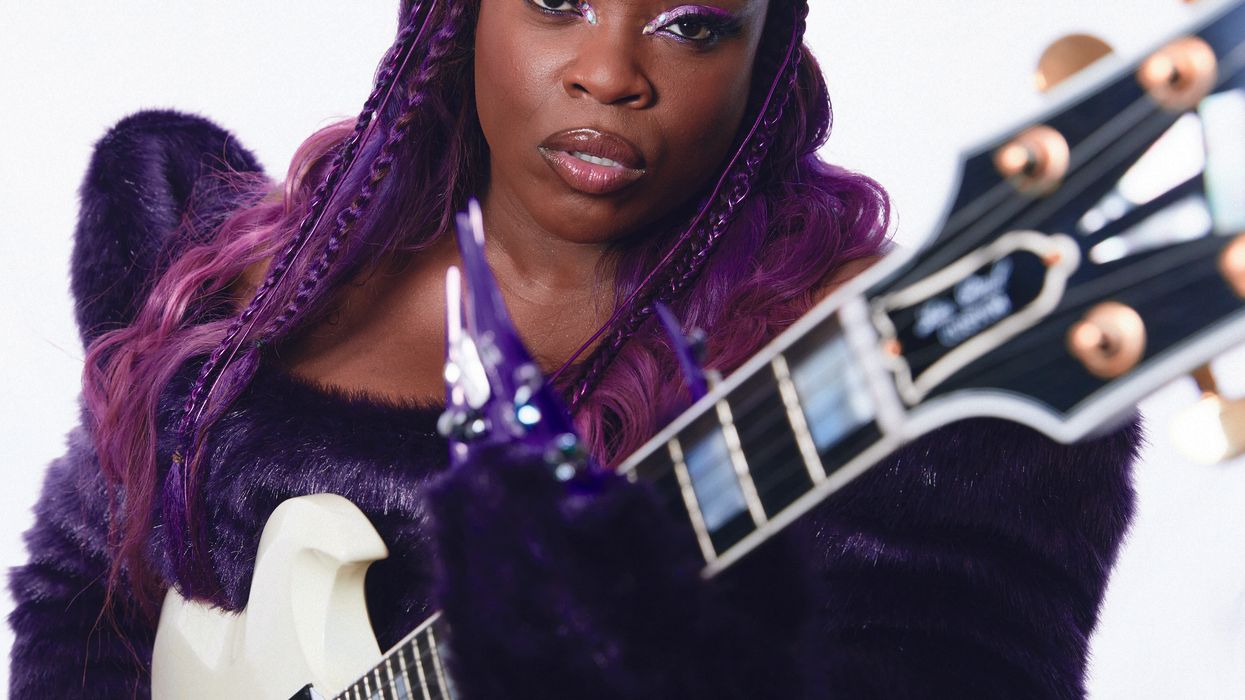







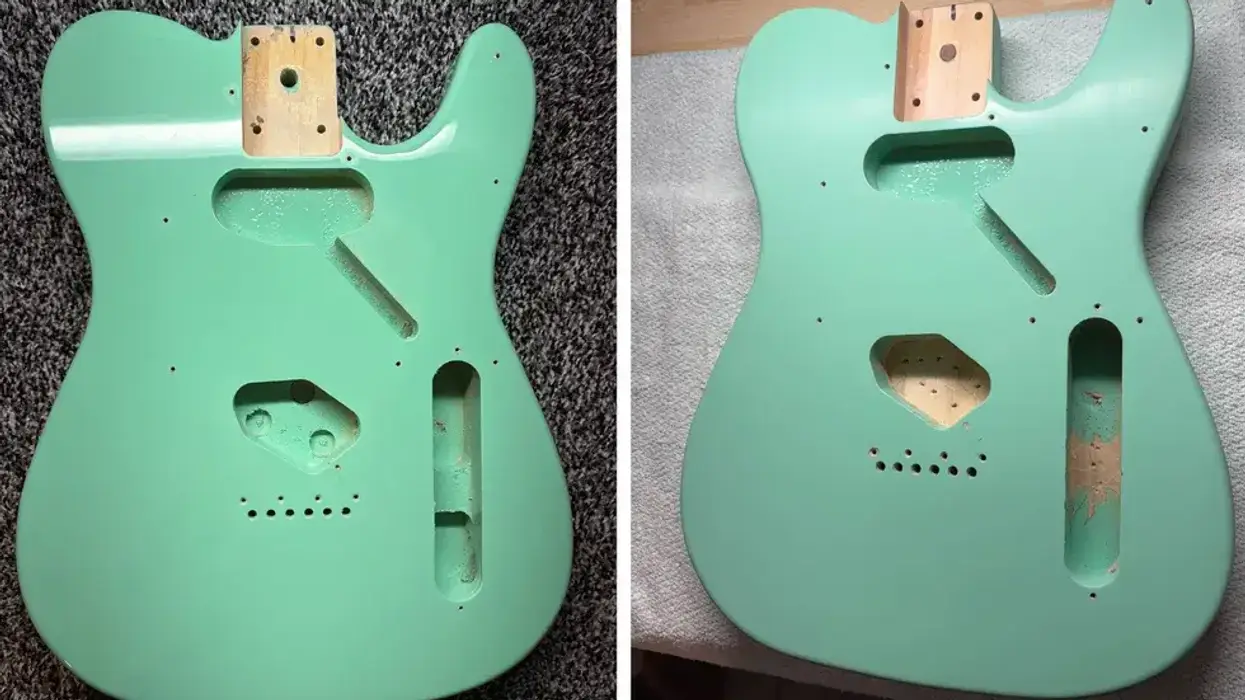


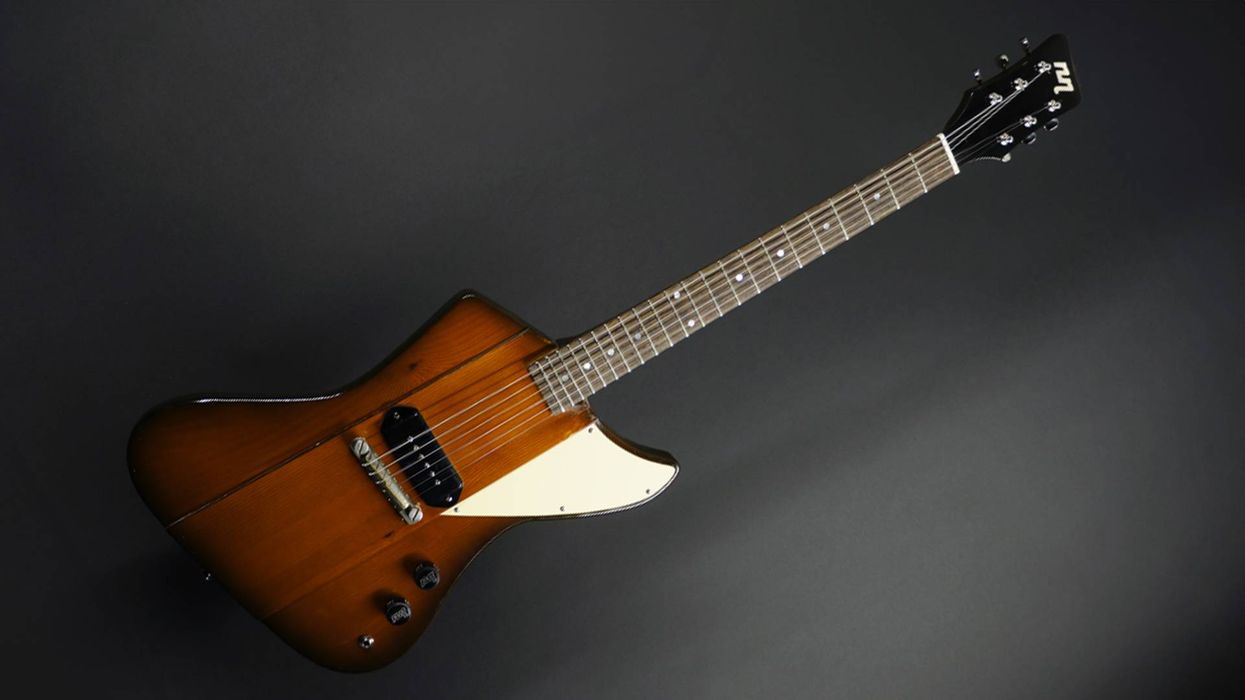











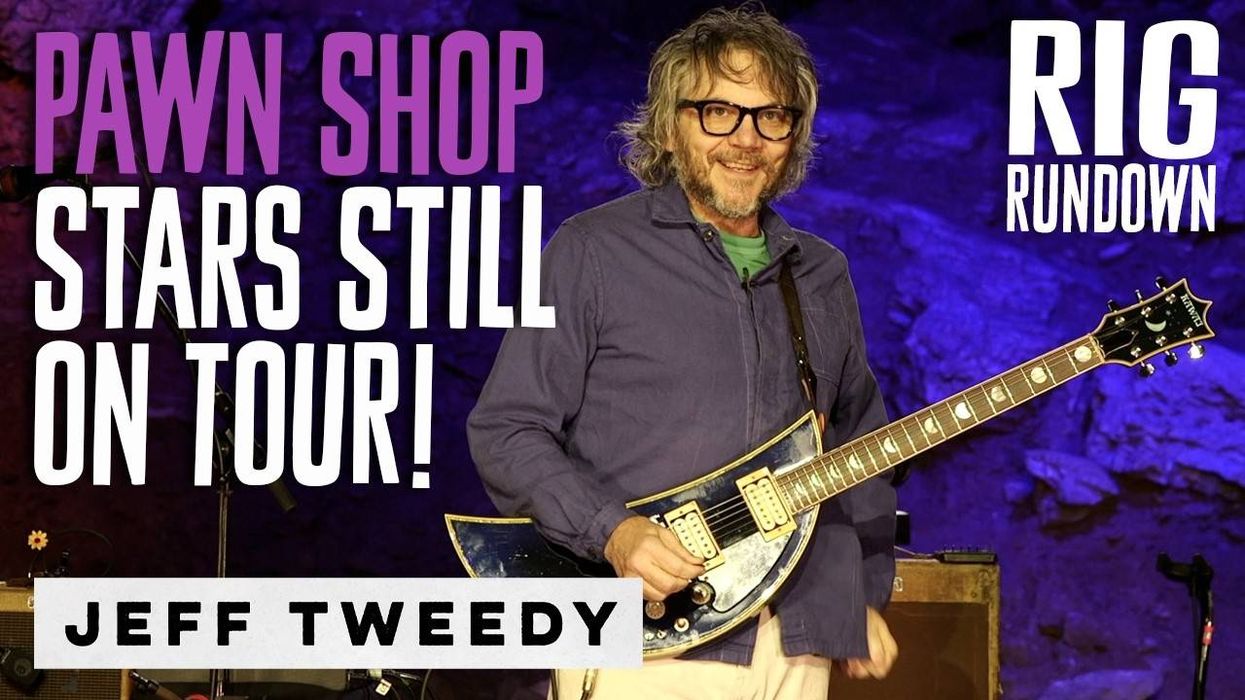
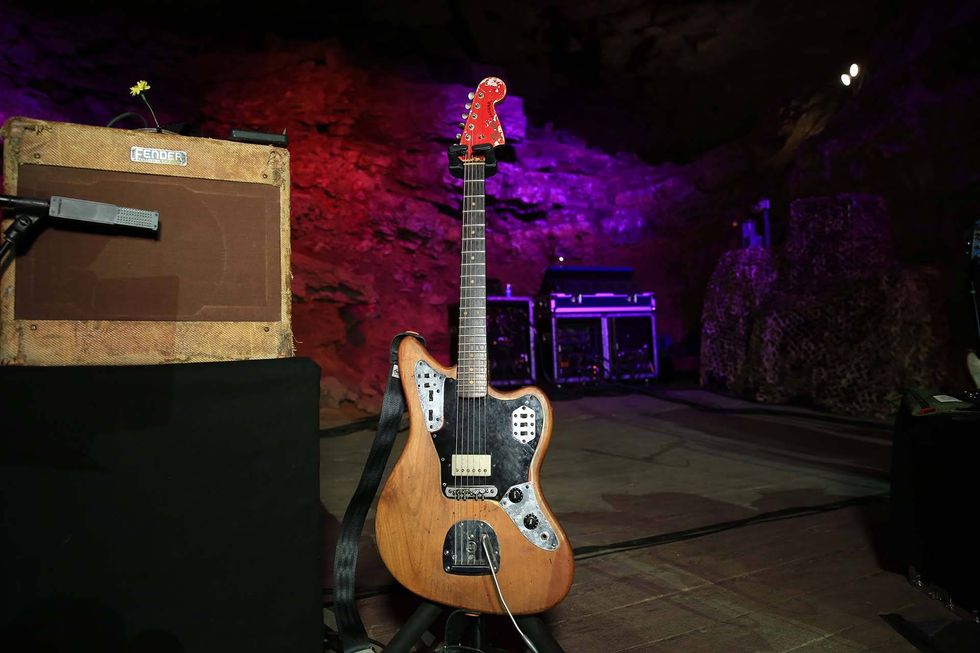
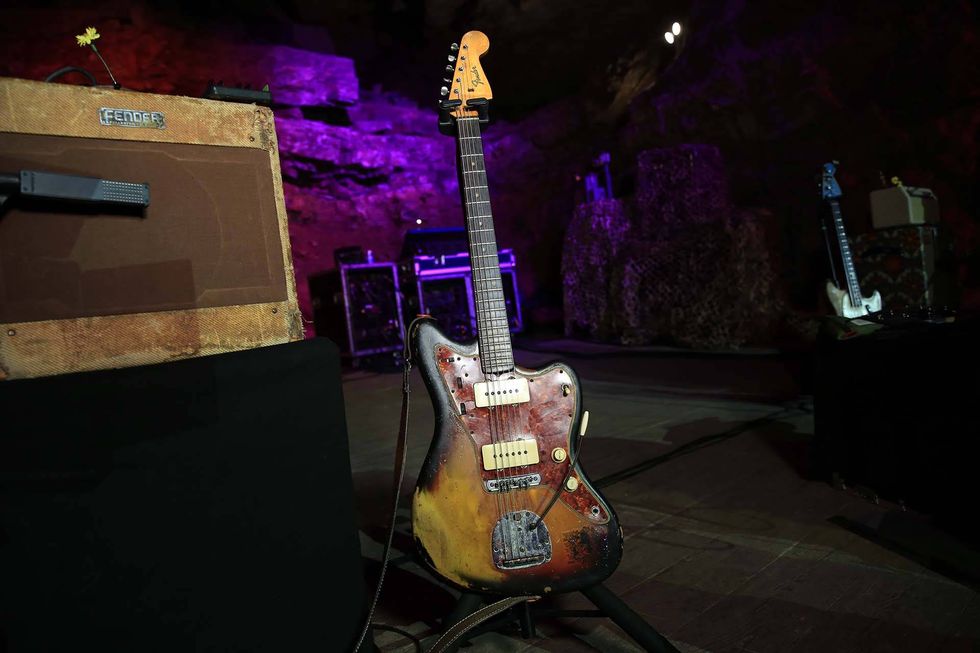
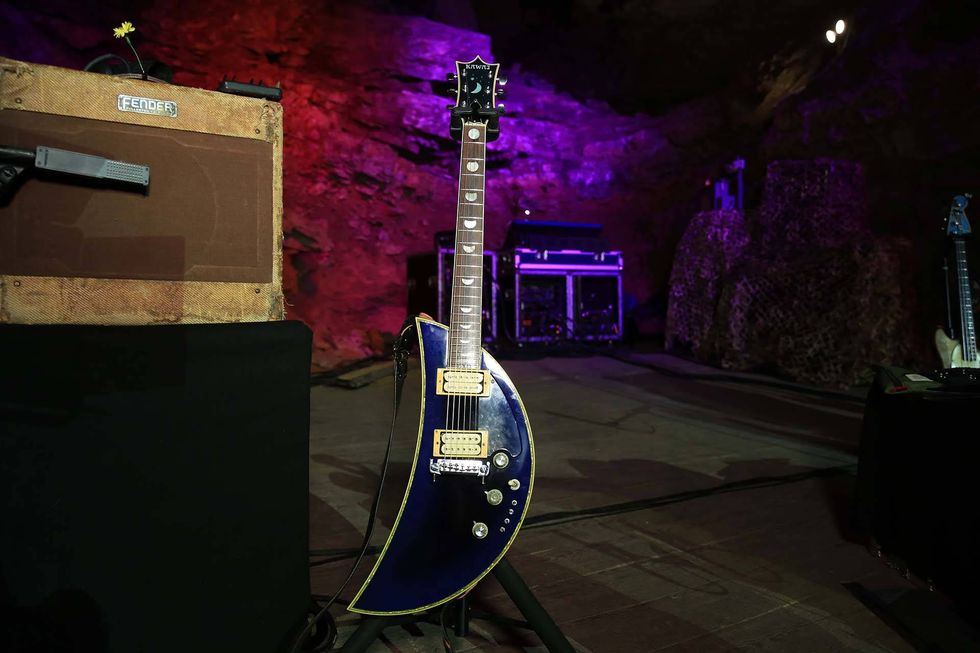

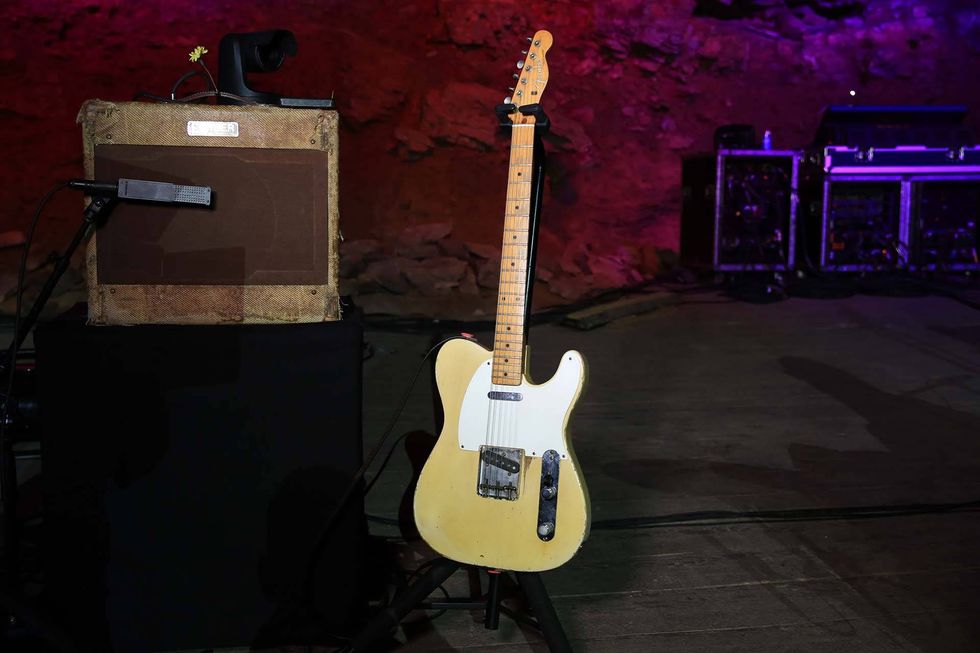
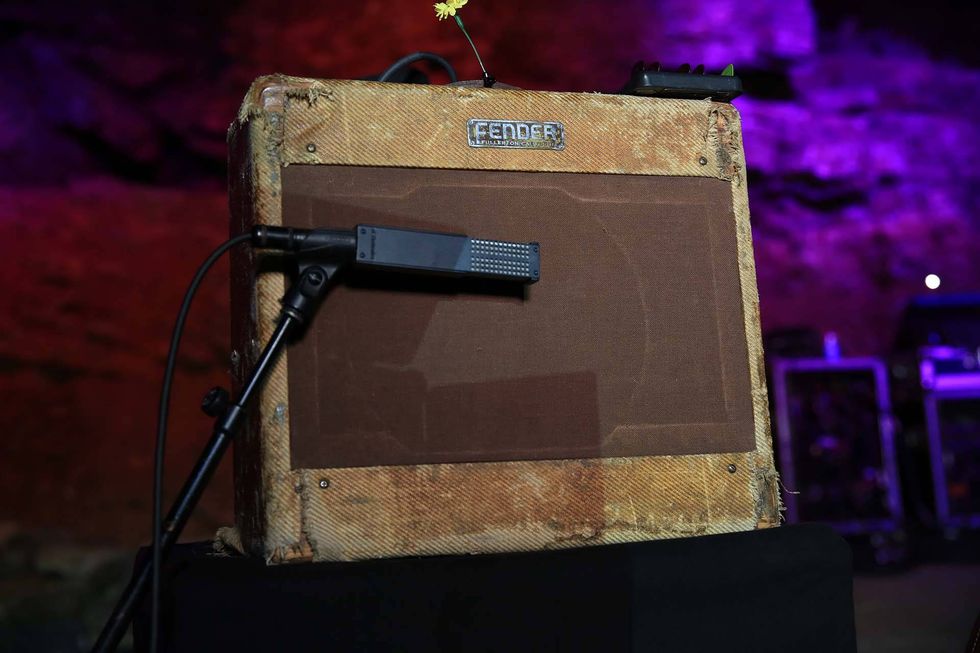
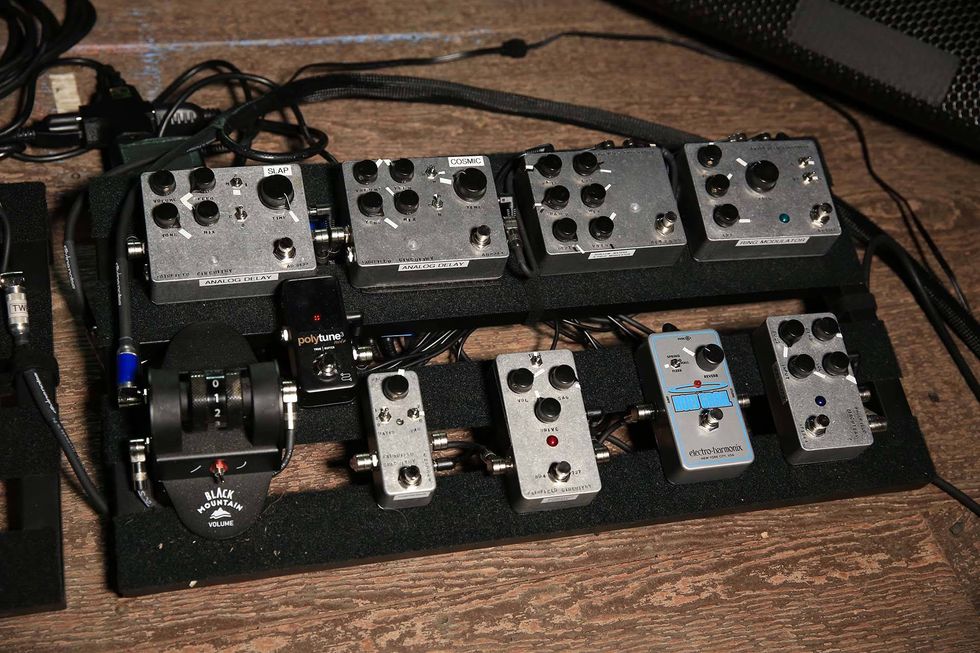
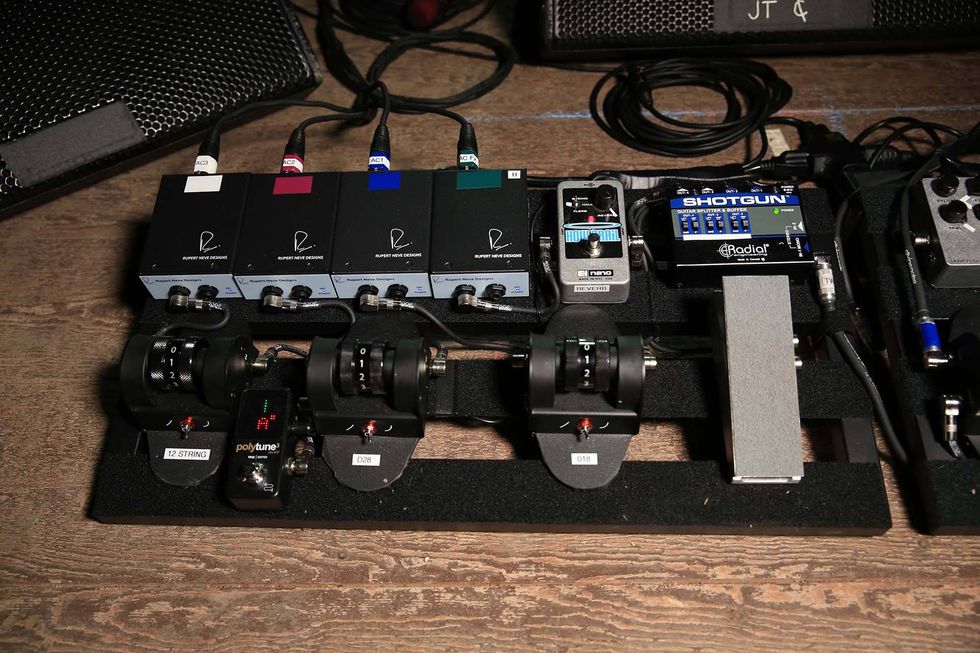
![Rig Rundown: AFI [2025]](https://www.premierguitar.com/media-library/youtube.jpg?id=62064741&width=1245&height=700&quality=70&coordinates=0%2C0%2C0%2C0)




















 Zach loves his Sovtek Mig 60 head, which he plays through a cab he built himself at a pipe-organ shop in Denver. Every glue joint is lined with thin leather for maximum air tightness, and it’s stocked with Celestion G12M Greenback speakers.
Zach loves his Sovtek Mig 60 head, which he plays through a cab he built himself at a pipe-organ shop in Denver. Every glue joint is lined with thin leather for maximum air tightness, and it’s stocked with Celestion G12M Greenback speakers.






